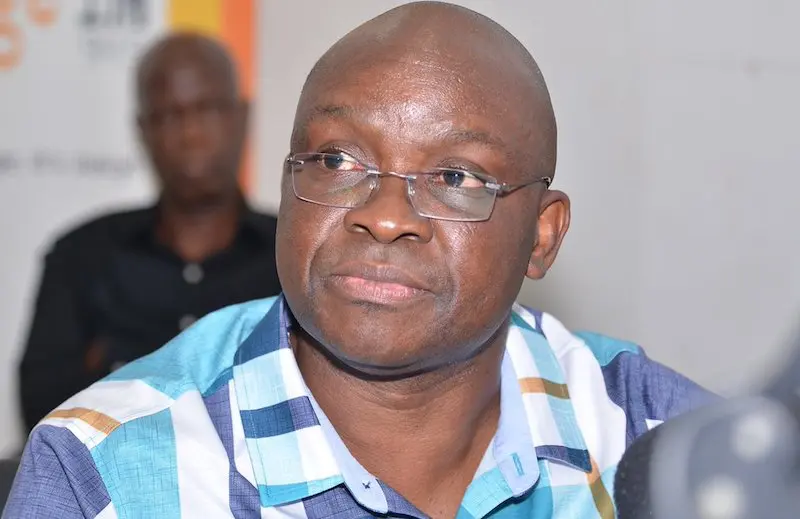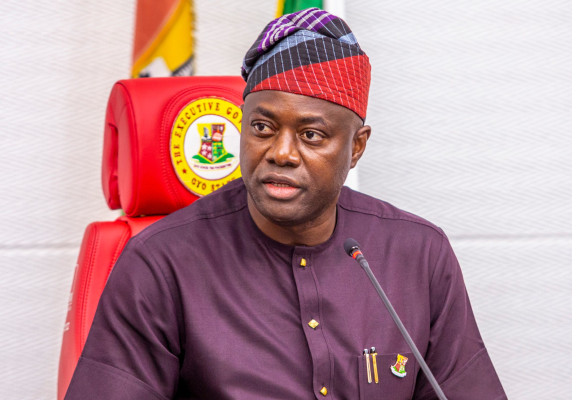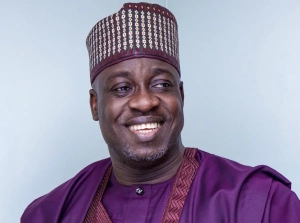Ayodele Fayose, former governor of Nigeria’s Ekiti State, celebrated a major legal triumph this week following his acquittal in a high-profile corruption case. A Federal High Court in Lagos dismissed all charges against him on Wednesday, concluding a seven-year legal battle that had drawn significant public attention.
The case, filed by Nigeria’s Economic and Financial Crimes Commission (EFCC) in July 2019, accused Fayose of laundering ₦6.9 billion (approximately $4.5 million) during his tenure as governor. Prosecutors alleged the funds were misappropriated between 2014 and 2015. However, Justice Chukwujekwu Aneke ruled that the anti-graft body failed to provide credible evidence connecting Fayose to the crimes. “The prosecution did not establish a sufficient link to compel the defendant to present a defense,” the judge stated, effectively ending the case.
Fayose’s post-acquittal celebration underscored his signature blend of political theatrics and grassroots appeal. In a widely circulated video shared by Lere Olayinka, spokesman for Federal Capital Territory Minister Nyesom Wike, the former governor is seen sharing amala, a Yoruba dish made from yam flour, paired with ewedu soup, alongside bricklayers at a construction site. Known for his unorthodox public engagements, Fayose framed the meal as a gesture of gratitude and solidarity. “We thank God for this victory,” he said, gesturing to the workers. “These are my people—Christ said such as these belong to His family.”
The case’s dismissal marks another chapter in Nigeria’s tumultuous anti-corruption efforts, where high-profile acquittals often intensify debates over the efficacy of legal proceedings. The EFCC, established in 2003 to combat financial crimes, has faced criticism for cases perceived as politically motivated or inadequately prosecuted. Fayose’s trial, one of multiple corruption scandals involving former governors, drew scrutiny for its prolonged timeline and evidentiary challenges.
While supporters hailed the verdict as a vindication, critics questioned whether procedural weaknesses overshadowed substantive accountability. Legal analysts note that the ruling highlights the burden of proof required in complex financial cases, particularly where documentary evidence or direct testimonies are lacking.
Fayose, a vocal opposition figure, has consistently denied wrongdoing, framing the case as persecution during his 2018–2019 tenure. His celebratory meal, symbolic of communal ties in Nigerian culture, resonated with supporters who view his approach as relatable. Yet, the case’s outcome also renews discussions about judicial impartiality and the broader fight against graft in Africa’s most populous nation.
For now, the former governor’s legal victory—and his choice of celebratory cuisine—offers a vivid snapshot of Nigeria’s intersectional politics, where courtroom drama, cultural symbolism, and public sentiment persistently collide.







![Seth Rollins, Paul Heyman, Bron Breakker and Bronson Reed [Image Credits: wwe.com]](https://mediatalkafrica.com/wp-content/uploads/2025/07/The-Rocks-SummerSlam-Scheme-Rollins-Injury-Exposes-Mastermind-Plot-300x169.jpg)

